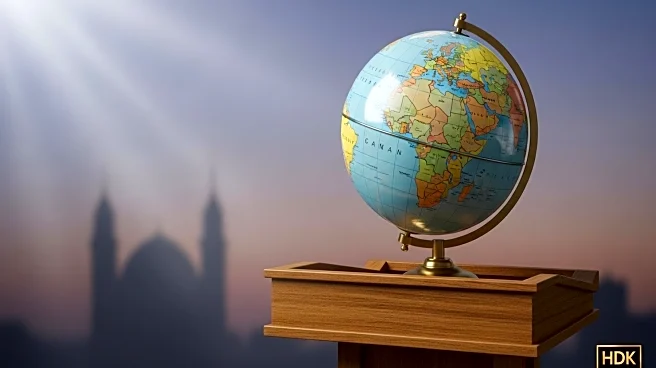What is the story about?
What's Happening?
President Trump is set to deliver a speech at the United Nations General Assembly, focusing on his foreign policy achievements during his second term. He plans to criticize 'globalist institutions' for their role in decaying the world order. Trump has previously reduced U.S. support for the UN, questioning its effectiveness. His administration has been involved in military actions, including airstrikes on Iranian nuclear facilities and drug-smuggling boats from Venezuela, raising concerns about extrajudicial killings. Trump will also hold meetings with various world leaders, including the UN Secretary-General and leaders from Ukraine, Argentina, and the European Union.
Why It's Important?
Trump's speech at the UN is significant as it reflects his administration's stance on multilateralism and global cooperation. His criticism of globalist institutions may influence international relations and U.S. foreign policy. The military actions in Venezuela and Iran could impact U.S. diplomatic relations and raise ethical concerns. Trump's meetings with world leaders may shape future diplomatic efforts, particularly regarding conflicts in Gaza and Ukraine. His approach to these issues could affect global stability and U.S. influence in international affairs.
What's Next?
Following his speech, Trump will engage in one-on-one talks with key international figures, potentially influencing diplomatic strategies and alliances. His administration's handling of conflicts in Gaza and Ukraine will be closely watched, with expectations for ceasefire agreements and hostage releases. The international community may react to Trump's criticism of globalist institutions, affecting future cooperation and policy decisions. Trump's pursuit of a Nobel Peace Prize could drive his diplomatic efforts and impact his approach to international relations.
Beyond the Headlines
Trump's ambitions for a Nobel Peace Prize may influence the tone of his UN address, as he seeks recognition for his efforts to mediate conflicts globally. His administration's military actions raise ethical and legal questions about the use of force and international law. The criticism of globalist institutions may reflect broader cultural and political shifts towards nationalism and unilateralism, impacting long-term international cooperation and governance.

















